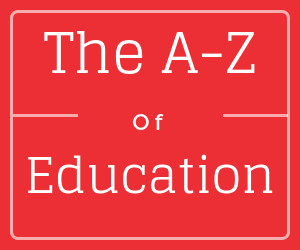Teaching & Learning Strategies, Concepts, and Terms That Every Teacher Must Know: Letters EP-EU

To be considered a competent educator, there are almost 2000 strategies, concepts, and terms that you must know. However, since teachers wear so many hats, who has the time to learn them all? Don’t worry; we have you covered. In this series, we will discuss all the teaching and learning strategies, concepts, and terms that you need to know to be considered an effective educator. There are over 70 articles in this series, so pace yourself. We recommend reading one piece per weekday, which will allow you to complete the series in three to four months. We hope you enjoy it.
Click here to read all the articles in this series.
Episodic Memory A component of long-term memory responsible for storing images of an individual’s personal experiences.
Epistemic Cognition The study of the production of knowledge.
Epistemology Is the branch of philosophy that considers how people come to learn what they know. Derived from the Greek word episteme, meaning knowledge or understanding, epistemology refers to the nature and origin of knowledge and truth. Epistemology proposes that there are four main bases of knowledge: divine revelation, experience, logic and reason, and intuition. These influence how teaching, learning, and understanding come about in the classroom.
Equality When all cultural groups have access to the same rights and privileges, regardless of which group of people they belong to.
Equal-Status Relationship The relationships of words or sentences having equal associations between concepts.
Equilibration The process of achieving a balance between present understanding and new experiences. According to Piaget, this process is necessary for learning.
Equilibrium A state in which a child is satisfied with their set of knowledge, ideas, and beliefs and feels mentally comfortable or in balance. A concept formulated by Piaget.
Equity Pedagogy Inclusive models of teaching that facilitate effective learning and academic success of students from various ethnic and socio-economic backgrounds.
Equity Refers to policies and practices that are impartial, seeking not to favor certain groups over others. Regarding educational funding, equity relates to an equitable and balanced distribution of funds to both poor and wealthy districts.
Equivalent Forms Two or more forms of an assessment that measure the same standards or topics are of equal difficulty and are constructed using the same format.
Error Analysis The process of identifying consistent types of errors in the work of a student.
Essentialism Is the educational philosophy of teaching basic skills. This philosophy advocates training the mind. Essentialist educators focus on transmitting a series of progressively difficult topics and promotion of students to the next level or grade. Subjects are focused on the historical context of the material world and culture, and move sequentially to give a solid understanding of the present day. This philosophy stresses core knowledge in reading, writing, math, science, history, foreign language, and technology. The tools include lecturing, memorization, repetition, practice, and assessment.
Ethical Dilemma A difficult situation which can’t be resolved by any single, clear course of action based on law or research. There are positive and negative outcomes likely for any course of action taken.
Ethno-Nationalism Has some similarities to nationalism, but is loyalty to a particular ethnic or racial group rather than to a nation. In the multiethnic environment of the United States, however, ethnonationalism may cause relative division between various ethnic or racial groups. Certain groups may believe that, due to their common ethnic or racial origin, members have the same ancestors and can be regarded as “relatives.” Examples of ethnonationalism include the differentiation between the Gujarat and Punjab tribes of India, Croatians, and Bosnians of the former state of Yugoslavia (now divided into several countries) and the Hutus and Tutsis of Rwanda, where ethnonationalism had devastating consequences for part of the national population.
Etiology The study of a theory, problem or issue’s origin.
Eurythmy Artistic movement within a group that tries to show the tone and emotion of speech and music. The study of eurythmy allows individuals to improve their focus, self-discipline, and sense of beauty. It also improves sensitivity to the group as well as individual body awareness.

